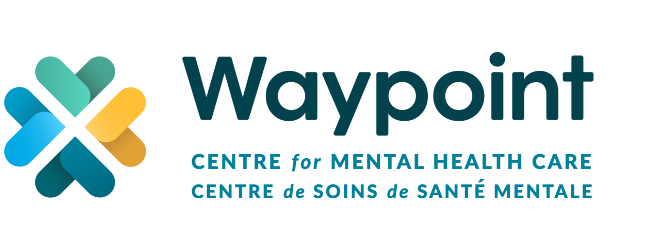There’s no better feeling for Chris Prete than seeing a carefully crafted discharge plan help a patient find a new home in the community.

Chris has been a Registered Social Worker on Waypoint’s Bayview Program for Dual Diagnosis since 2008. “Same desk, same chair” on the fifth floor of the Toanche Building, he remarked with a smile. He is deeply committed to helping patients who have completed their care in the hospital transition to a community setting.
“Some people who no longer need the level of care provided in the hospital still need additional care to safely return home or to a community setting,” he explained. “Finding this for them also improves access to inpatient services for people in the community who require the specialized care Waypoint provides.”
That thinking mirrors the hospital’s goal of supporting marginalized and vulnerable individuals living with severe mental health and substance use challenges succeed in the community and continue their recovery with dignity. This commitment also reduces unnecessary or prolonged hospitalizations for patients who are ready to leave the hospital and require supports to thrive.
Bayview patients have a developmental disability and mental health needs. Some may remain in hospital for years awaiting discharge to another setting that provides them with the health care, personal support and other needs they require to maintain stability.
While Waypoint is making progress with new initiatives, there is still more to do to help people live well and independently. Affordable housing shortages are well known, but shortages of supportive housing are not as widely understood. Chris and the Waypoint team work with community partners to provide this essential need. Through such arrangements, 21 patients successfully transitioned to living in the community over the past year.
Chris’s interest in this field traces back to his teens, when he worked as a counsellor at Camp Simpresca. One camper had Down syndrome, and Chris found he had an aptitude and an interest in working with the youngster. He later worked for the Barrie and District Association for People with Special Needs (now called Empower Simcoe), the Blooming Acres group home near Barrie, and the Queensville-based supportive-living organization New Leaf, to name a few.
“My entire career has been centred around supporting people with intellectual disabilities,” said Chris, who has a bachelor of social work from Ryerson University (now known as Toronto Metropolitan University) and a master’s degree in social work from York University. He also worked for the provincial government before coming to Waypoint, serving as a research director and policy analyst in the Ministry of Children, Community and Social Services.
A six-month Waypoint contract in 2008 has turned into a fulfilling career. One of the highlights involved a patient of more than 30 years who was recently discharged to a community setting.
“We did a ton of work to support her transition,” he recalled. “It was fantastic to see. She wanted to go, and the team on Bayview got to see a resolution that they felt happy with. When you see someone you care about being discharged to a good model, you feel good.”


